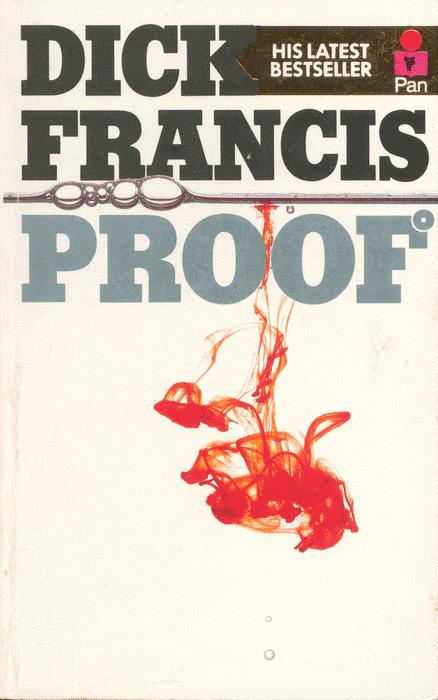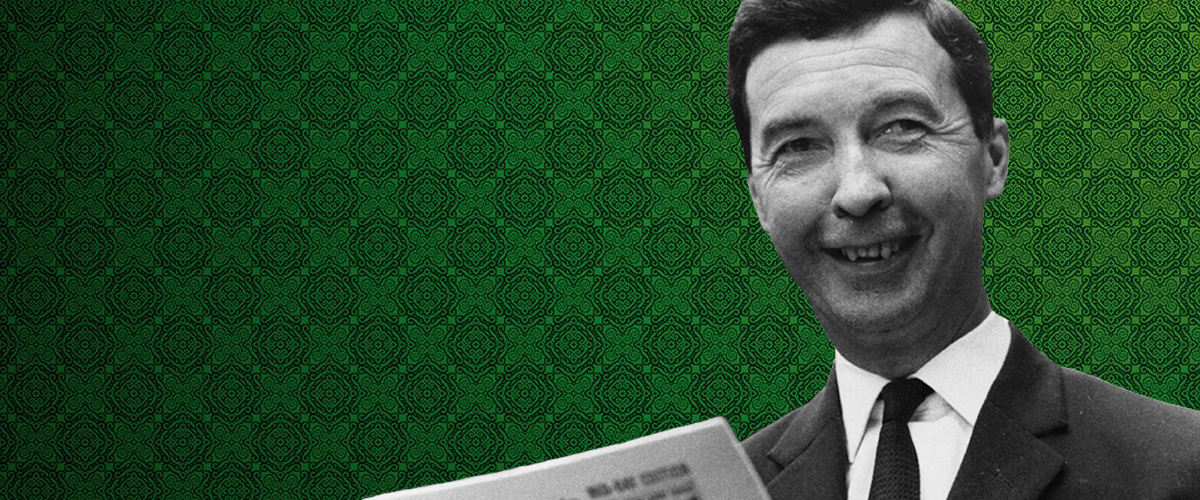Whisky Business
Life can change cruelly and suddenly for reasons infinitesimally small. What can you do when this happens to you?
For liquor merchant Tony Beach, the answer comes in the form of an odd quest to uncover a conspiracy involving counterfeit spirits, hijacked trucks, and a little murder.
And being this is a Dick Francis novel, some racehorses, too, though not so much as we might expect.
Already numb from the death of his wife and unborn child, Beach witnesses another tragedy as a horse trailer crashes into a garden party, killing eight people. Beach reacts with life-saving aplomb, but remains haunted by a deeper sense of unworthiness, both from widower guilt and the crushing legacy of his war-hero family:
My grandfather’s Victoria Cross lay beside my father’s D. S. O. in the display case I had inherited. It was their dash, their flair, their daredevilment that they had not passed on.
 |
| A garden-party marquee like this becomes a deathtrap after a horse trailer crashes into it, setting the story in motion. Yet little is made of this episode in the rest of the novel. Image from https://arabiantents.com/galleries/ideas/garden-party/. |
Low self-esteem is a strange central quality to bestow on a protagonist in a mystery-adventure like this, but Francis sells it. In Beach he finds a quiet center and a bit of an explanation for that classic thriller-novel question: Why would any intelligent person willingly thrust him- or herself into danger?
In Beach’s case, it has to do with those family medals, and the ennui which has engulfed him since his wife’s fatal brain hemorrhage. He needs to feel alive again; Francis’s care in presenting this gives Proof purpose and realism that will satisfy even readers expecting more conformity to the mystery and suspense genres than this delivers.
It worked for me, anyway.
There is always a connection to horses in Francis novels – horse racing was his prior profession, a common background in his novels, and a visual motif on his dust jackets and paperback covers. Here, the hoofbeats are very distant. Beach, being a liquor seller, caters a party thrown by a stable owner where the aforementioned trailer has its deadly accident.
Or is it an accident? While police investigate the matter, Beach has time to recall a conversation he had about one of the victims. It seems the victim’s restaurant sold a suspiciously ordinary Scotch whisky bottled as Laphroaig, a uniquely strong single-malt. At the request of a gruff detective, Beach visits the restaurant and agrees the stuff is bogus.
“Laphroaig is as smoky as you can get,” Beach explains. “Pure malt. There’s almost no malt at all in what I’ve just tasted.”
| Laphroaig may be one of the most distinctive Scotch single-malts on the market; certainly it's not for everyone. So if you want to counterfeit it, you better not go easy on that peaty malt flavor. Image from https://www.laphroaig.com/en/. |
The restaurant, the Silver Moondance Saloon, is promptly shuttered, though not before a mysterious bull of a man who answers to the name Paul Young announces he is in charge of the establishment and kicks up a fury about the police bust. Before he can be investigated further, he disappears. Soon after, one of the restaurant employees is discovered murdered, suffocated by a mask of plaster-of-paris.
In the world of counterfeit liquor, it appears some people play for keeps.
This element of Proof proves harder to swallow; that a group of crooked dealers in legal intoxicants would resort to killing and deadly force to bottle their product under phony labels. After all, it has been a while since people like Al Capone and Dutch Schultz ran the trade.
But Francis makes the concept work by explaining how much of a mark-up one can get in the legitimate end of the business, especially when it comes to the higher-end stuff:
Customs and Excise duty, value added tax and income tax paid by the shopkeeper meant that three-quarters of the selling price of every standard bottle of whisky went in one way or another to the inland revenue. One quarter paid for manufacture, bottles, shipping, advertising, and all the labor force needed between the sowing of the barley and the wrapping in a shop. The liquid itself, in that context, cost practically nothing.
Especially if it isn’t good to begin with. In a restaurant, or at a catered event like a horse race, discerning between a Clos St. Jacques and any old plonk can be rare, at least in the tony racing circles Tony travels in. An educated palette comes in handy.
 |
| The horse motif on Francis book covers may depend on the national market. A Pan U. K. paperback ignores horses entirely for that of liquor and blood, which suits the book more. Image from https://bookaudio.online/275-dick-francis-proof.html. |
Which just happens to set Tony apart, along with his ability to listen to people, a trait sharpened by his work as a liquor seller. A corporate detective named McGregor notes this when he requests Tony’s help for a mission he describes in classic British understatement as being “on the very edge of consultancy…and maybe beyond.”
More often than not, Proof works as a character study that happens to be set within a crime-fiction novel. Beach has a curious Prufrock quality about him, a willingness to fade into the background that is countered by a keen sense of duty that McGregor and the police alternately call upon.
One exchange reveals a sense of moral compromise in Beach’s work, after McGregor witnesses him sell beer to an unsteady customer:
“He was drunk,” he said.
“Sure.”
“Don’t you care?”
“Not as long as they’re not sick in the shop.”
“That’s immoral.”
I grinned faintly. “I sell escape also.”
The first-person narration Francis employs limits suspense. When Beach describes himself in a tight spot, you know he will survive the encounter. But it does provide a window into what makes him tick:
Absolution, it had always seemed to me, was a fake. To err was human, to be easily forgiven was to be sentimentally set free to err again. To be repeatedly forgiven destroyed the soul.
Such a sharp focus on the interior of the main character does reduce what you expect from a mystery, though the criminality is never far away and there are sharp jabs of real action and suspense. Mainly, though, Proof is as much about the liquor trade as anything else, whether Beach visits bars to help root out fake hootch or sneaks into a suspicious distillery with McGregor.
Francis did his research and wants to share it with you. At times I was reminded of Arthur Hailey, who wrote potboilers in the mid-20th century that focused on specific industries, like Hotel and Airport. Francis takes time out to explain such things as the importance of casks and corks.
This was a gamble for him, a conscious deferral of the demands of his genre. In the last mystery I read, A Taste For Death, an Adam Dalgliesh mystery published two years later, P. D. James did a similar thing by putting the mystery on the back burner while she focused more on the interior lives of both major and minor characters.
In that case, it didn’t work; here it does. Why? I think a lot had to do with the care Francis took to develop the humanity of his main character. A lot of times, purveyors of crime fiction will put their protagonists through torture tests which leave me engaged but detached. Here, Francis presents Tony Beach’s more casual moment-by-moment interactions with sensitivity and deft detail; even when they don’t push the plot, they mattered because of the way I got pulled in.
 |
| Dick Francis. Image from https://crimereads.com/dick-francis-a-crime-readers-guide-to-the-classics/, which offers a marvelous look at the writer's output. |
I don’t think first-person narratives are a good idea in suspense fiction. Unless William Holden is narrating, you know the talker is going to survive. The writer is left to get you to like and then kill off their allies, a common trope of suspense fiction both cold-blooded and annoying.
Yet Francis gets away with his first-person narration because he works the angles, playing up each of Beach’s encounters, however random and unimportant, as strands of real humanity filtering through to someone in need of more of the same. He’s in a struggle to care about something, and you want him to win, even if it kills him:
I was in truth quite interested in the stolen scotch and the tankers, but on a minor level, not down where it mattered….
If I lived with ghosts, they were within me: Emma, my father and the titanic figure of my grandfather, impossibly brave. They lived in me not condemning but unconsoling.
As he explains to a friend: “I never minded being alone until I got used to something else.”
Proof definitely has some flaws, mostly regarding the mystery. The villains lack depth and are much too feral in manner considering the genteel world they inhabit. The finale involves an infiltration that makes no sense, and Beach seems a bit too magical in his palate. The pace Francis sets is sure and steady, but deliberate verging on slow.
Yet
Francis’s investment on building empathy works through these issues. The result
works both as a character study and an engaging primer about the liquor
business.


No comments:
Post a Comment